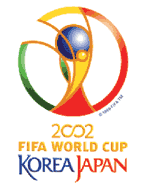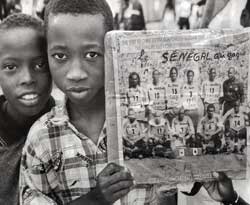 Before this year's World Cup began, I picked Argentina to beat Portugal in the final. Neither team, of course, made it out of the first round. Nor did defending champion France or two-time winners Uruguay.
Before this year's World Cup began, I picked Argentina to beat Portugal in the final. Neither team, of course, made it out of the first round. Nor did defending champion France or two-time winners Uruguay. These traditional powers hail from Europe and South America, and it's shocking how those regions have owned the tournament in the past. Of the 16 previous World Cups, eight have been won by European teams, eight by South Americans. In 1998 and 1994, every quarterfinalist was European or South American. Over the five most recent Cups, only two teams from other continents (Cameroon in 1990 and Mexico in 1986) made it that far.
This year, of the eight quarterfinalists, one each are from Africa (Senegal), North America (the US), and Asia (co-host South Korea). Critics of this year's tournament are making excuses-the tournament was scheduled too soon after the European club season but too late to escape the north-east Asian monsoon, etc, etc. But the simplest explanation is that the "world game" is finally starting to globalise.
The best leagues in the world are still in Europe, but the main reason today is that that's where the money is. In the line-ups of the world's richest clubs you'll see Trinidadians, Liberians and Australians. Players and coaches are moving around the world more than ever, and their long-ignored national teams are the beneficiaries.
 Complex inferiorities
Complex inferiorities The deafening Korean crowds have certainly been a major factor in their team's three victories, but to some degree the team has succeeded despite the crushing weight of their countrymen's expectations, which have little to do with football and everything to do with history.
Popular sentiment here demanded that Korea do at least as well as co-host and long-time oppressor Japan, and it didn't matter that the Korean team was facing more difficult opponents. Then the US started having a good Cup and Korea wanted to keep up with the Joneses, with whom they have a very understandable love-hate relationship built on over 50 years of hosting American soldiers.
Then, over the weekend, I met a Korean schoolteacher who said that initially she was just hoping the team would make the second round, but once they'd drawn Italy there, victory was essential. Why? Because North Korea-the country she'd been taught all her life to hate and fear-had beaten Italy in 1966 and it would be shameful not to at least equal that feat. Very few of the current throngs of red-shirted South Korean fans were alive in 1966, but that doesn't matter. The local TV networks were hammering the point home by incessantly showing hazy black-and-white footage of an antique North Korean goal.
The Korean team has measured up to all three of those imagined foes, in addition to the real ones they've faced on the field. Who knows what would have happened if they had instead lost to Italy-riots? mass suicides?-but thankfully we'll never have to find out.
Nepali fans around the world
In Osaka last week, I had the needle-in-a-haystack experience of randomly meeting a Nepali at a match. I was standing in a beer line before the England-Nigeria game when I heard the man behind me tell someone he was from "Mount Everest." Lok Bahadur Biswokarma actually hails from Pokhara, but I guess that's what he says to avoid getting blank stares.
I had to pay about double face value to a ticket scalper that day, but Lok, who's been living in Osaka with his Japanese wife Shigeko for three years, working as a noodle chef, had gotten tickets to this very desirable match at regular price, by some means I didn't quite understand that involved writing a letter to FIFA and then waiting in a long queue of Germans.
Lok was shirtless and had a small England flag painted on his cheek. I asked him about this allegiance, but he said he'd had his face painted just for fun-he doesn't support any of the teams at this year's tournament. He apologised, "dherai raksi khaayo", but most of the crowd at that match was in the exact same boat. We were so excited to find each other that we met again at halftime, when he introduced me to his wife. Even though the game was a goal-less draw, meeting him made it a special afternoon.


